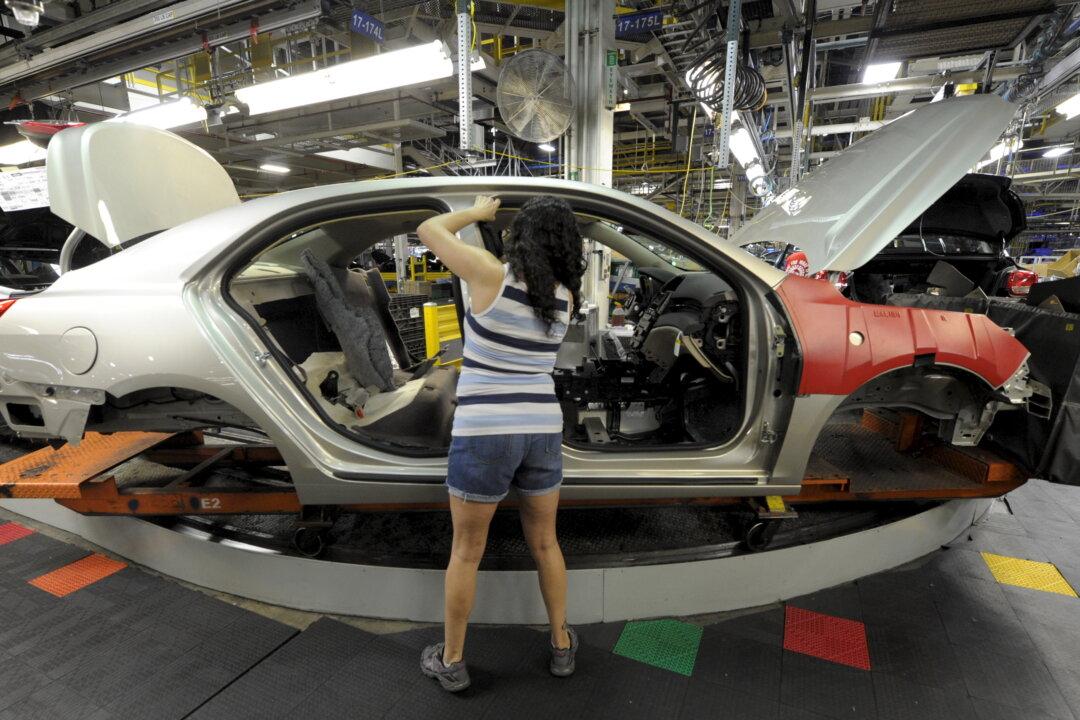DETROIT—General Motors Co became the latest automaker hit by the global shortage of semiconductor chips as the U.S. automaker said on Feb. 3 it will take down production next week at four assembly plants.
GM said it will cut production entirely during the week of Feb. 8 at plants in Fairfax, Kansas; Ingersoll, Ontario; and San Luis Potosi, Mexico. It will also run its Bupyeong 2 plant in South Korea at half capacity that week.





